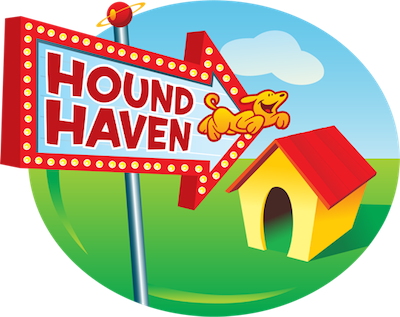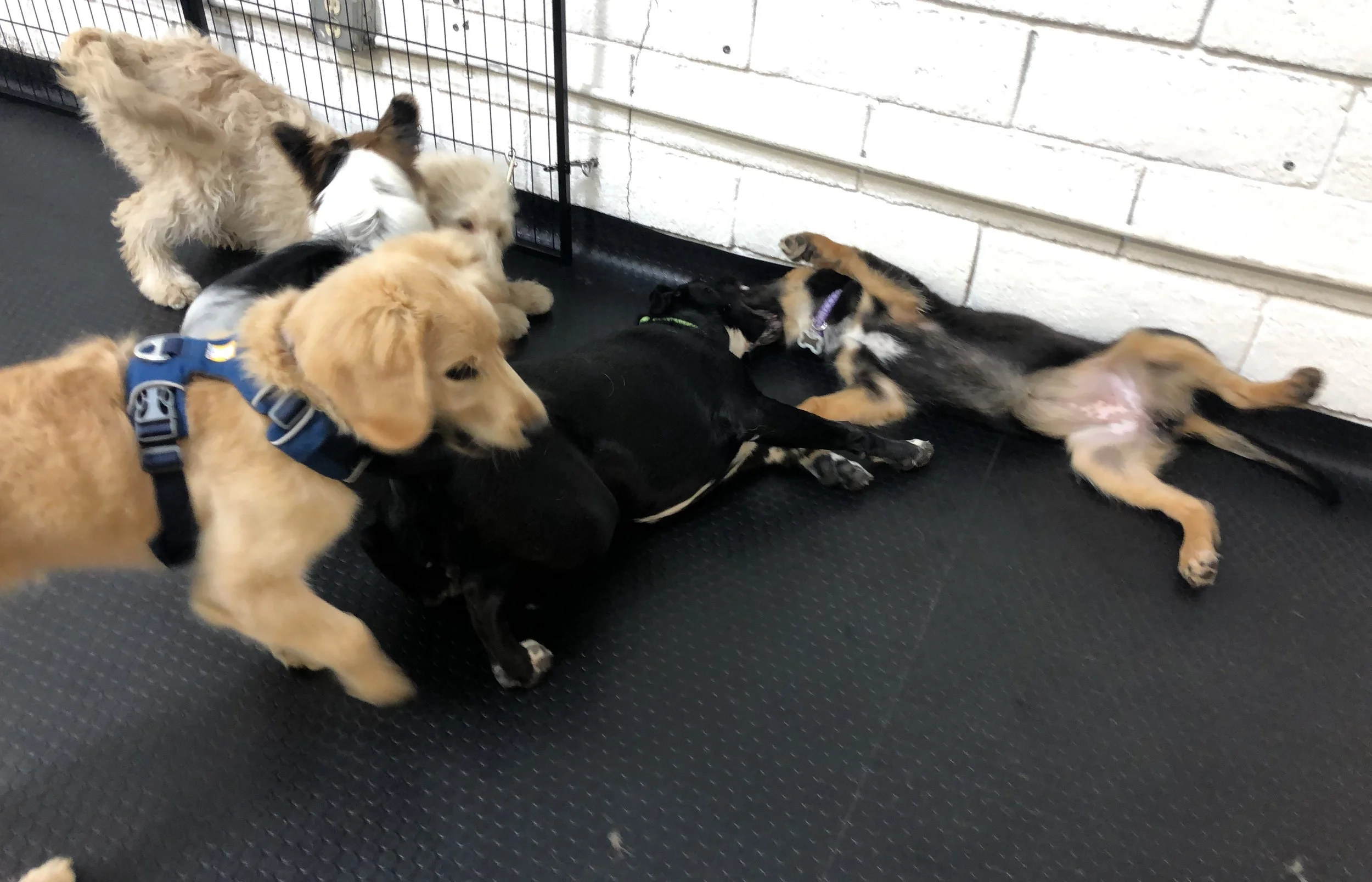So you have a new puppy! Congratulations and welcome to the adventure. So much to do, so much advice, friends telling you what to do, Dr. Google, the random stranger on the street. Everyone has ideas on what you should and should not do and some may be better than others.
Attending Puppy socials is often one of the things that new puppy guardians are told to do. While I may not agree with all the tips people are given about rearing a new pup, this is one I wholeheartedly agree with. Like many things, not all puppy socials are created equal, so let’s explore why puppy socials are a good idea and what to look for when you pick a social for your puppy. A common misconception people have when they attend a puppy social (or perhaps why they don’t attend) is that it’s just a non-stop smackdown between the puppies. Face biting, chasing, wrestling, and pinning each other to the ground.
While puppy socials can seem chaotic and yes, we may see some or all of those behaviors during play understanding why it’s important to attend puppy socials and how to make an educated choice about which one is serving the needs of your puppy and you are equally as important. As puppy socials have become more mainstream of course there are more options for where to bring your puppy. So here are some things to be aware of when making your choice.
Are the puppy socials supervised by a professional trainer or trainers? Preferably someone who is certified as a trainer is your better choice.
Are they using aversive tools or physical corrections with the puppies during play?
Are the puppies given breaks or do they just “go at it” for an hour?
Is the space sanitized for young puppies who may not be fully vaccinated yet?
Are puppies separated by size, age, temperament, and play style?
Are the puppies allowed to go at their own pace, so they feel comfortable around the other puppies and people?
A good puppy social is set up for all of the puppies to be successful and learn. Just like other young learners they don’t know all of the rules and need the practice to gain the skills they will need to become well-rounded adults. Every puppy has their comfort level and starts at a different place and it’s imperative to let them develop at a pace that works for them to continue growing. Some pups come out of the gate ready to roll, they have their party hats on and are a bull in a china shop. On the other hand, some puppies are more reserved and take things slower. They may hide, shy away from other puppies or just be a bit nervous starting. Both need to learn skills; the Tarzan pups need to learn to cool their jets some and the reserved pups need to gain confidence. By managing the interactions, we can help all the puppies learn how to read each other and modify their interactions with each other.
Puppy play can look and sound scary. Let's face it there are a lot of teeth and biting. They will chase, roll around, growl, squeal, and bark. All normal puppy play, that is how they learn. We do need to intervene at times to help manage and make sure they are learning appropriate skills and that all the pups are enjoying the interactions. That is where a qualified trainer who understands and can read canine body language is invaluable. They can explain what is going on and why the play is or is not appropriate so that you are more equipped when you are watching your puppy’s interactions with other dogs.
Most socials want you to begin bringing your puppy before they are 16 or 18 weeks of age. This is the critical socialization window for young puppies and when it closes it's gone for good. This is the time in your puppy's life when they are most mailable to accepting new things and we want to take advantage of that. That's not to say they can't learn later, it's just that why would we want to stack the deck against them if we have the chance to put a couple of aces up their paw. While too much of a good thing can overwhelm the puppy, I suggest attending puppy socials at least once a week with a young puppy. Going once and never again will not have a very big impact on your pup, don't think of it as a one and done, consider it an ongoing opportunity for your young puppy to thrive. Many puppy socials will allow pups to continue attending after the 18 weeks so long as they are remaining social and still enjoying the experience so look for a puppy social that has an option for the older pups as well.
Don’t wait to get started! Most socials allow puppies at 9 weeks old. Get out there and have fun with your puppy!
The Hound Haven offers puppy socials in Santa Clara, Ca. every Sunday - we would love to have you join us if you are in the area!


